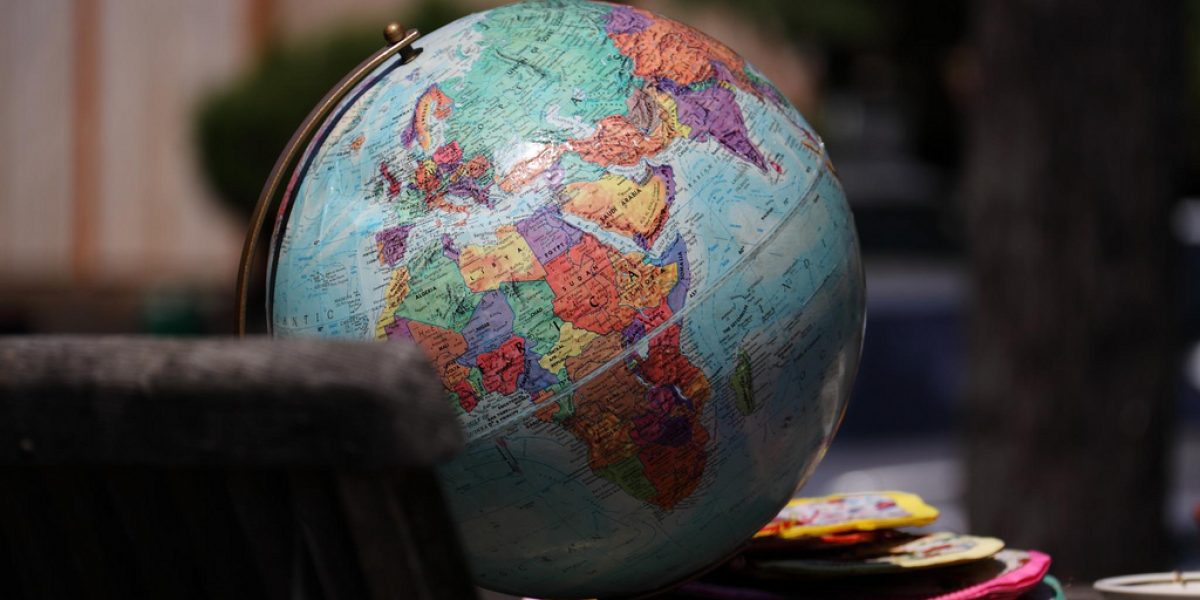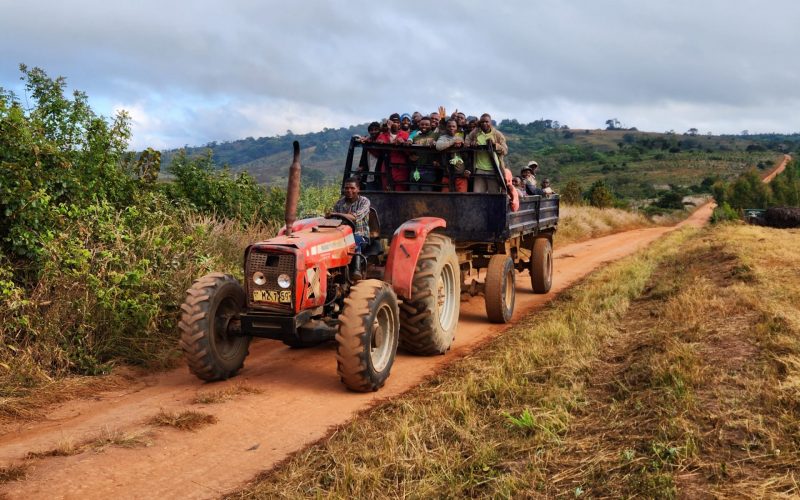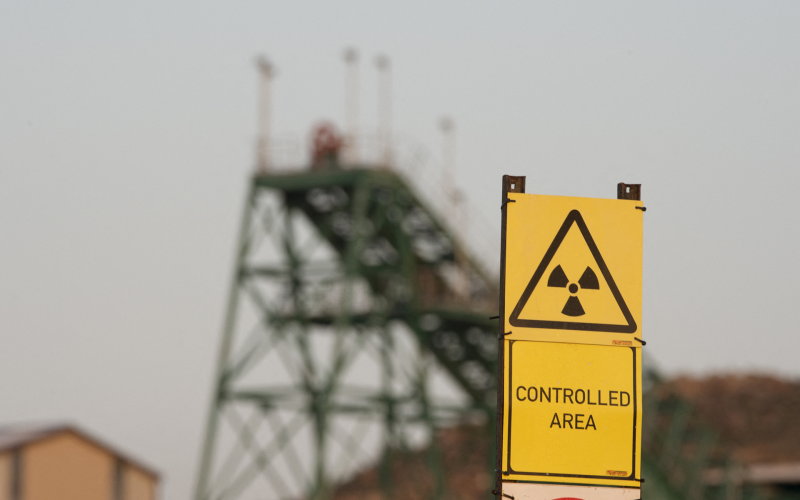Through such comparisons lessons can be learnt on how to reach the goal of making the future a slightly better place for Africa’s inhabitants.
In this regard it is necessary to look beyond the horizon of conflict, to find the places where communities do in fact benefit from mining and to identify the spaces where civil society organisations, like some in Malawi, have managed to change mindsets on the need for communities to benefit directly from mining activities.
But, in stark contrast to the above, political analysis often gets bogged down in discussions on social spaces where the political objectives of opposing forces cause human-on-human violence to erupt. War, insurgency, terrorism, and rebel activities all conspire to trap political analysts in the trenches. Violent conflict is brought about by linguistic expressions that pit the protagonists of certain ideas against one another in a zero-sum game played through the barrel of a gun. But, political struggle is not only about language and meaning. The struggle of Palestinians or the objectives of the FDLR in Eastern Democratic Republic of Congo are also informed by the material conditions that impact on the lives of those immersed in situations where armed violence characterise political relations.
This article seeks to explore, in a somewhat preliminary way, the growing importance of the resource governance debate in Africa. This debate is confronted, in part, by the intricate layering of issues that shape debates on and the actions undertaken by a whole range of actors involved in or affected by the extraction of resources. Once the outlines of such a layer-cake reality are sketched, it may be possible to isolate some key challenges to social- and institutional development in the African political space.
Cases of political discontentment with the extraction of resources, and political perceptions regarding the way such incomes should benefit communities (or a nation as a whole), have in too many cases turned violent when political frustrations flare into a full-blown politics of grievance and greed. Cases of conflict like those in the Niger Delta, or contested claims for control over mineral deposits in the Democratic Republic of Congo (DRC), confronts analysts with the complexity of engagement with the politics of resources in Africa. The range of actors is dizzying: local warlords and militias; NGOs; communities; multinational corporations; national politicians with a hand in the cookie jar; multilateral organisations that try to impose lasting peace on conflict ridden socio-political spaces; aid organisations. These actors behave according to their own diverse interests, needs, and perceptions of reality. But, in many cases they share both physical and intellectual spaces – either by virtue of being together in mining towns and communities that live side by side with oil pipelines, or by their perceptions about the existential reality shaped by extractive industry activities that flows from it.
From Malawi to the DRC, from Lagos to Accra and Kampala, oil discoveries and mining activity all stand as central features of political debate on the future of African economies and societies. The political significance of the debate on resources can, therefore, not be underestimated. In the case of Ghana’s new oil finds, which are set to bring a major new source of revenue on-line, a hefty debate has taken off with concrete questions being asked about what role the national Parliament and newly minted independent institutions are to play in providing an oversight function. Uganda, also on the list of Africa’s new oil producers, will in all likelihood see much more dynamism in its forthcoming elections due to the shock-value of the potential and promise hidden in becoming an oil exporter in a world addicted to the black stuff. The issue of resource extraction is therefore not only a concern of States and corporations, but is largely defined by the societal nexus wherein both the State and extractive industries operate.
The societal nexus wherein States and corporations operate is a politicised space where the experiences of displacement, poverty, and alienation give rise to actions that challenge reigning orders. When reflecting on the future role resources can play in the development of the continent it is becoming increasingly evident that resource politics driven by greed and grievance has to be replaced by a discourse on cooperation. If the African Union is based on the lofty goal of unity, then such continental unity will remain a pipe-dream if local conflicts (often based on grievance and sparked by the need to control the flow of resources) cannot in the long term be turned into spaces of social discourse and cooperative action. If such a substitution can’t be made, African political space is set to remain littered with spent cartridges and the bad smell of social contracts gone to the dogs.
How does one weave an integrated social fabric where basic human needs are met, while individual and communal aspirations can create healthy social environments geared towards progress? This question is crucial in debates on the sustainable and responsible extraction of resources. The odd thing when confronted with resource extraction is that it affects all levels of political perception, institutional/State practice, and economic actions undertaken by local and global actors in African countries. Responsible systems to govern resource extraction and the distribution of its benefits into the societal nexus have, therefore, become a central feature not only of political debate on the continent, but could, if handled properly, become a platform upon which shared African experiences can shape the future of both societies and systems.
In a strange way the multi-faceted and multi-layered set of issues, interests and role-players involved in resource sectors establishes a rich environment for creative thought and imaginative interventions. But, it should be acknowledged that the density of conflict and disagreement that define the African resource space is further influenced by particular historical experiences within African political territories of traumatised peoples and far flung rebel-trodden territories inherited by young African states and democracies.
As a result of this historical transfer of social trauma, states struggle to establish conditions of civic peace in environments littered with the burning embers of wars and new resource grievances. The complex challenge Kinshasa, Khartoum, Harare, Accra, Dar Es Salaam and Kampala (to name but a few African capitals) share, calls for the creation of stable conditions wherein societies and economies can develop. At the same time it is necessary to develop new institutional structures that are transparent to facilitate the further development of sectors currently sadly beset by corruption and power mongering. Thus the multi-dimensional nature of the resource governance debate becomes visible. It essentially presents the activists, corporate strategists, and governmental agencies with an interest in the workings of the sector with a proverbial multi-hued cow where no-one really knows where to find the head or tail in the early morning mist. Thus the dream that resource extraction can contribute to socio-economic development can easily turn into a nightmare.
As the global economic turmoil continues, African and Eastern economies continue to grow. Northern newspapers and magazines call Africa the new Asia and predict that this continent will be the fastest growing market on planet earth for foreseeable decades. This links well with an avalanche of all-Africa summits hosted by France, the EU, Japan, India, and China in recent years. More are in the proverbial pipeline. But, all of them preach from the same market prayer book that shouts about the significance of the continent. While diplomatic words are uttered on the importance of the continent, agreements are quietly inked in the back rooms to facilitate access to mines, oil, or to penetrate markets where foreign merchants can peddle cheap goods on the overcrowded sidewalks of African capitals.
In order to develop a deeper understanding of the unique African political reality that emerges when resource extraction and the social nexus meets, one needs to view even the most complex and conflict-ridden realities that ensue as possible lessons on the path of African socio-political evolution. If the world is so up-beat about Africa’s future, it may be necessary for us as Africans to engage rigorously with the way(s) in which we govern our social and resource spaces. The human ability to transform our environment to better suit our needs teaches the lesson that our social institutions, practices, and modes of operation are also the result of creative engagement with both material and ideational realities. This means that in as much as the resource sectors pose major questions in terms of their social, political and economic impact, they also call forth creative thinking geared towards finding new ways of solving some old and some new problems.
Earlier on it was noted that conflict is brought about by the linguistic expressions of meaning that pit the protagonists of certain ideas against one another. In the search for real benefits to accrue to communities and nations from the extraction of resources, it is necessary to create a new language that can give new meaning to both human life and resources in Africa. Is the meaning of resource extraction only located in the creation of super-elites and zero-sum conflict, or can its meaning be altered through rigorous debate to benefit the societal and environmental nexus it is extracted (some would argue, plundered) from? To alter the meaning resource extraction holds for Africans will take bravery and an ability to acknowledge that the now may not be ideal, but that it is all we have and that we have to work together to shape an imaginative socio-political context informed by the logic of shared learning and cooperation.








